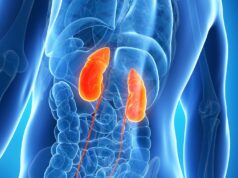 Talaris Therapeutics has announced that it has completed a review of its business and programme prospects. Based on this review, Talaris has decided to discontinue its FREEDOM-1 and FREEDOM-2 clinical trials evaluating FCR001’s ability to induce durable tolerance in living donor kidney transplant recipients. This decision was primarily attributable to the pace of enrolment and the associated timeline to critical milestones. The company will continue to enrol its FREEDOM-3 Phase 2 clinical trial evaluating FCR001’s ability to induce tolerance in scleroderma.
Talaris Therapeutics has announced that it has completed a review of its business and programme prospects. Based on this review, Talaris has decided to discontinue its FREEDOM-1 and FREEDOM-2 clinical trials evaluating FCR001’s ability to induce durable tolerance in living donor kidney transplant recipients. This decision was primarily attributable to the pace of enrolment and the associated timeline to critical milestones. The company will continue to enrol its FREEDOM-3 Phase 2 clinical trial evaluating FCR001’s ability to induce tolerance in scleroderma.
The company has initiated a comprehensive review of strategic alternatives focused on maximising shareholder value, including possible business combinations and/or a divestiture of the company’s cell therapy CMC capabilities. The company has not set a timetable for completion of this strategic review and does not intend to comment further on the status of this process unless or until its board of directors has approved a definitive course of action, or it is determined that other disclosure is appropriate. There can be no assurance that this strategic review will result in Talaris pursuing a transaction or that any transaction, if pursued, will be completed on attractive terms.
In connection with the evaluation of strategic alternatives and in order to extend its resources, Talaris is implementing a restructuring plan that includes reducing its workforce by approximately one-third, with remaining employees primarily focused on maintaining the company’s cell therapy CMC capabilities and executing FREEDOM-3.
“It was an exceptionally difficult decision to discontinue further development of FCR001 in kidney transplantation tolerance despite the promising early data,” said Scott Requadt, chief executive officer of Talaris. “I want to express our sincere thanks, first and foremost, to our patients and their donors, as well as to our investigators and collaborators for their participation in this effort, and hope to see continued improvements in kidney disease care in the future. We also want to sincerely thank all our employees, who have been supporting our mission to transform patients’ lives.” Requadt continued: “While we are disappointed that our work in kidney transplantation will not continue, given the potential of FCR001 to induce durable tolerance, we intend to continue its evaluation for scleroderma, which remains a very high unmet medical need for which there are limited treatment options.”











